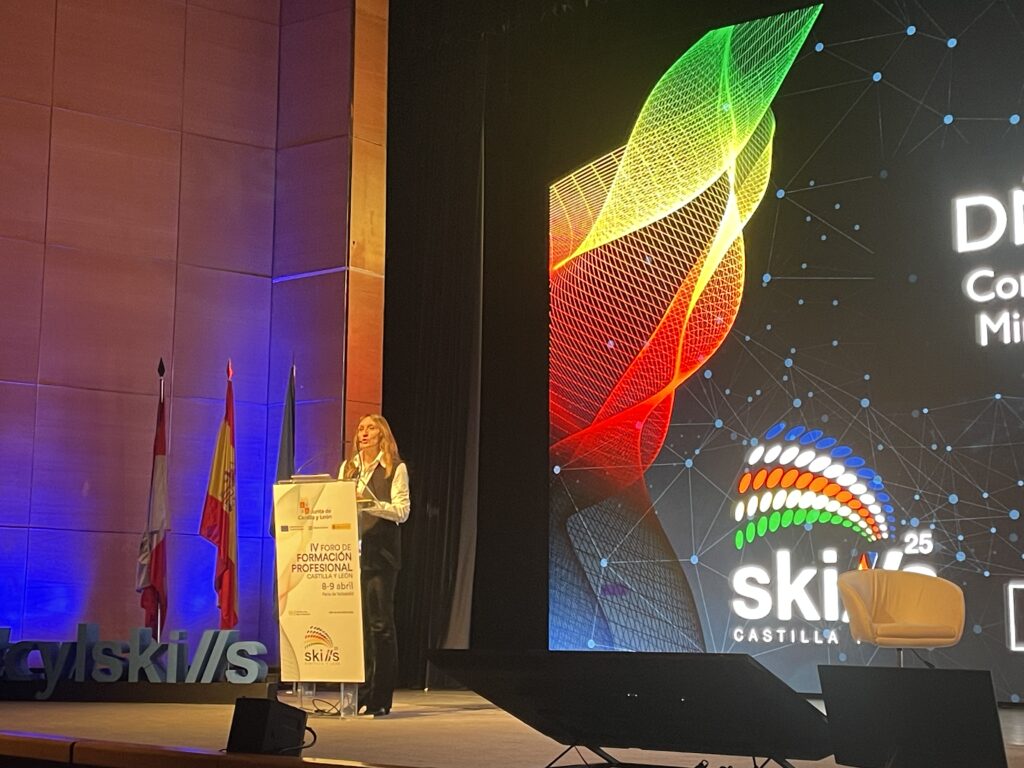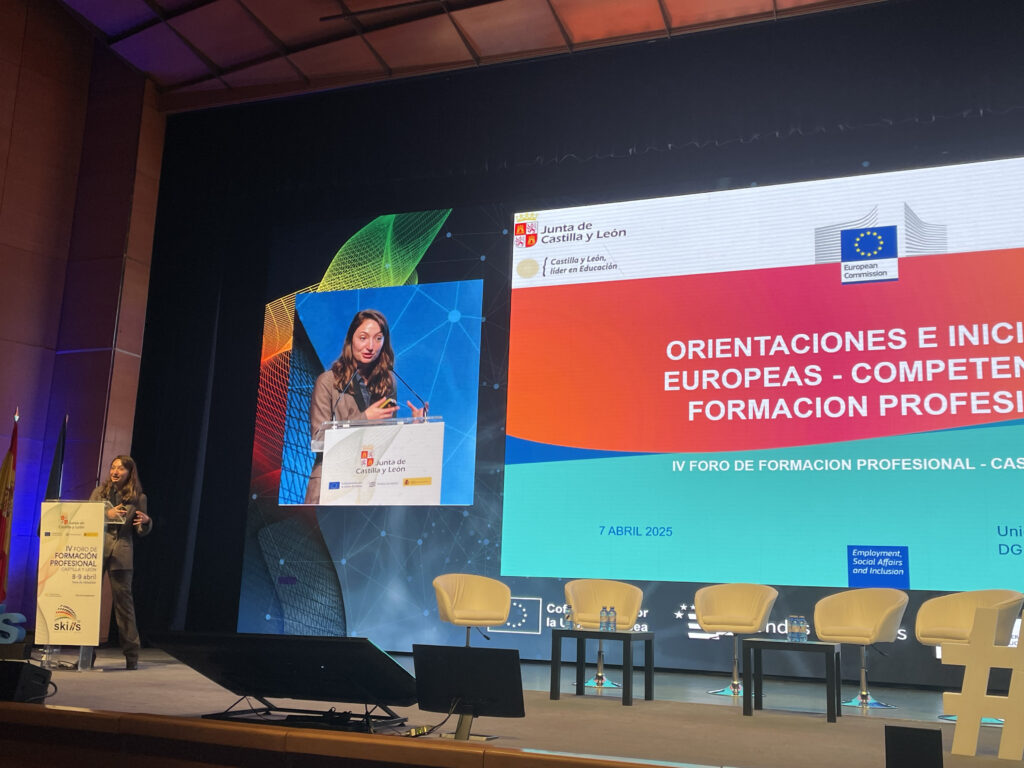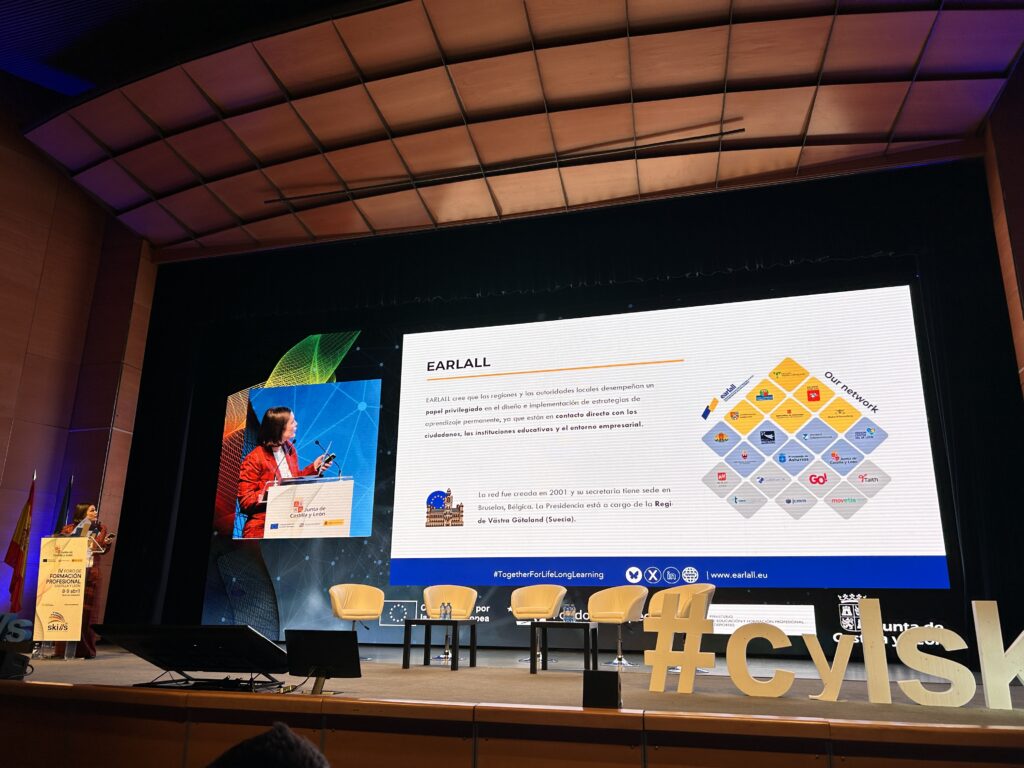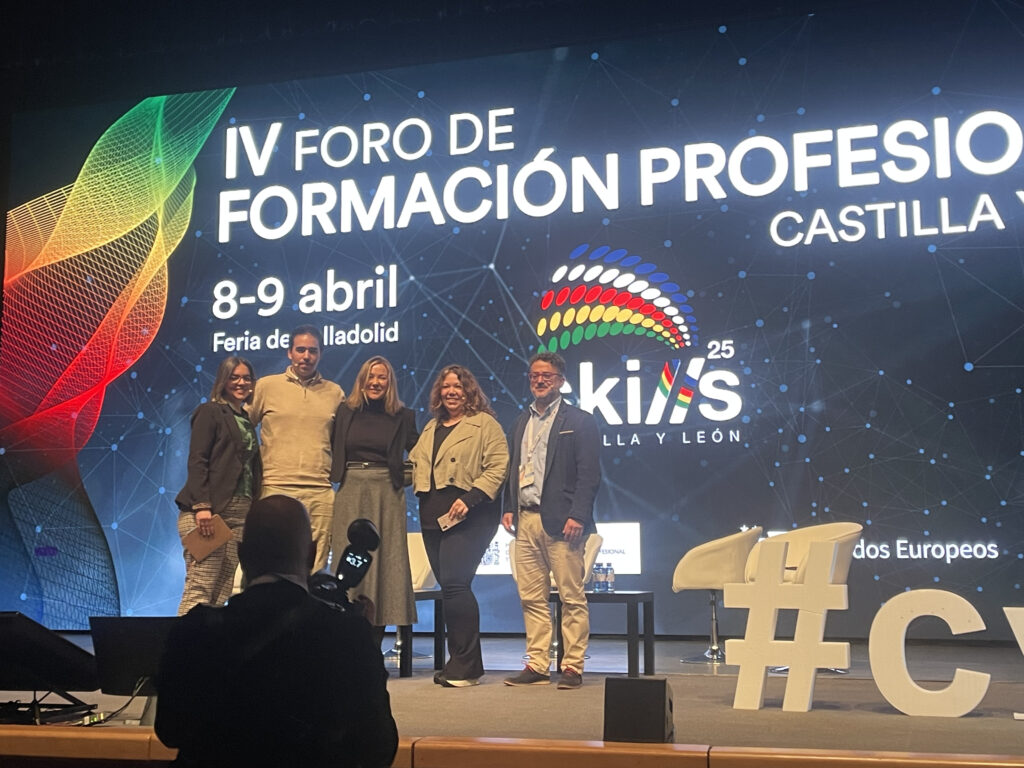Castilla y León Hosts IV Vocational Training Forum: VET as a driver of regional excellence and innovation
10/04/2025

On April 8–9, over 400 education professionals, policy-makers, and European stakeholders gathered in Valladolid for the 4th Vocational Training Forum of Castilla y León, an EARLALL member region. Held alongside the regional Skills Competition, the event showcased the excellence of vocational education and training (VET) and sparked important discussions on its future role in regional development.
The forum, organised by the Castilla y León Department of Education, coincided with the region’s Skills Competition, where 220 students competed in 33 disciplines and 22 demonstration events—highlighting the talent, employability, and innovation that define VET today.
VET at the Heart of Regional Development
Opening the event, Regional Minister of Education Rocío Lucas Navas underlined the strategic importance of VET in tackling social and economic challenges. With an employability rate above 87% and more than 48,600 students enrolled, VET in Castilla y León plays a key role in retaining talent and strengthening rural-urban cohesion.
The forum explored how VET must evolve to meet 21st-century needs—focusing on the green and digital transitions, aligning with local labour market demands, promoting lifelong learning, and deepening collaboration between training centres and enterprises.
European Perspectives: Skills, Inclusion, and Excellence
EARLALL actively contributed to the debate, sharing insights on regional strategies and how to embed VET within local ecosystems. The programme featured leading voices from the European Commission, ETF, CEDEFOP, and EfVET.
Professor Joachim James Calleja (EfVET President) opened the Congress discussions by underlining the importance of dual education models, transformative governance, and the Union of Skills initiative. José Manuel Galvín from ETF highlighted the evolution of Vocational Centres of Excellence (CoVEs) and the need for networked ecosystems built on local strengths. CEDEFOP’s Anastasia Pouliou addressed the emerging role of micro-credentials in creating flexible and inclusive learning pathways.
José Manuel Galvín (ETF) stressed the importance of international cooperation and local engagement in building ecosystems of excellence. With 333 Centres of Vocational Excellence (CoVEs) now active across 52 countries, he highlighted the need for learner-centred, locally rooted approaches. Tools like ISATCoVE and applied research, he noted, help VET centres become key agents of change.
From the European Commission, Paola Andrés outlined current skills-focused policies and funding frameworks. She pointed to the European Year of Skills (2023) and the €42 billion invested in skills development through instruments like the ESF+. With labour shortages in 42 sectors, and four in five SMEs struggling to find qualified workers, she underlined the need for better coordination between training and economic priorities. The ALMA programme was cited as an example of innovation targeting NEETs and vulnerable groups.
Regional Voices and Strategic Challenges
Representing EARLALL, Alicia Gabán emphasized that regions are best positioned to match training with local labour market needs. She reiterated the importance of cross-regional collaboration and prioritising inclusion, mobility, and sustainability in VET strategies.
Anastasia Pouliou (CEDEFOP) addressed the role of micro-credentials in modernising VET. While not new, they are helping to formalise and modularise learning. She stressed that inclusive excellence must remain a guiding principle—ensuring access for all learners, particularly those most vulnerable.



Cooperation, Business Engagement, and the Role of Dual Education
A roundtable on the internationalisation of the CoVE Alliance featured local projects like Habitable (on sustainable construction), with participation from Castilla y León. This was followed by a session on collaboration with social partners, where representatives from trade unions, businesses, and training institutions called for stronger ties between education and the private sector.
Speakers stressed that cooperation must extend beyond large companies like Renault and L’Oréal to include SMEs. Dual training and apprenticeships were identified as key tools for attracting and retaining talent in the region.
Agustín Sigüenza, Director General for Vocational Training in Castilla y León, added that two major challenges for the region are: preparing for the green transition and addressing demographic decline. As rural depopulation and ageing threaten the viability of training centres, VET must adapt to support both sustainable growth and territorial balance.
Participants also visited the regional Skills Competition, witnessing firsthand the potential of the next generation of professionals.
The second day centered on the various challenges facing the region, ranging from talent acquisition and retention to the implementation of the Dual system, as well as broader issues such as digitalisation, skills mismatches, and mobility and internationalisation. As EARLALL highlighted, addressing these challenges is essential for developing more innovative and modern VET systems across regions. Mr. Agustín Sigüenza Molina, Director General of Vocational Training, concluded the two-day congress by outlining the Strategic Lines for the New Vocational Training.
The forum concluded with a strong message: vocational education is essential to innovation, social inclusion, and competitiveness—not only in Castilla y León but across Europe.




